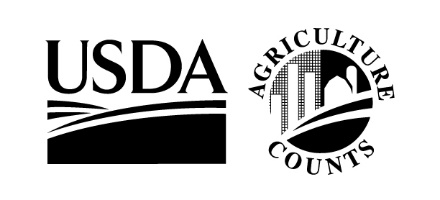National Agriculture Classification Survey (NACS) - Frequently Asked Questions (FAQs)
0140 - NACS Frequently Asked Questions.docx
List Sampling Frame Surveys
National Agriculture Classification Survey (NACS) - Frequently Asked Questions (FAQs)
OMB: 0535-0140
Mail date: XX/XX/XXXX
Due date: XX/XX/XXXX
Phase 4 Mailout
What is the National Agricultural Classification Survey?
The National Agricultural Classification Survey (NACS) is a nationwide effort to identify potential agricultural operations in the United States. The results of this survey will help provide the best possible coverage for the 2022 Census of Agriculture. The Census of Agriculture is a complete accounting of farms and ranches in the United States and the people who operate them. Collected once every five years by USDA’s National Agricultural Statistics Service (NASS), the Census of Agriculture provides information on land use and ownership, operator characteristics, production practices, income and expenditures. This information is used to help make decisions that benefit you and your community – from decisions guiding succession planning and new and beginning farmer programs to decisions impacting agriculture practices, land stewardship, and sustainability.
Why did I not receive a NACS survey? I own horses/farm/am in an FSA program/other reason?
If you do not normally receive any NASS surveys, sign up today at www.agcounts.usda.gov. If you normally receive NASS surveys, you did not receive a NACS because you are already on our agriculture mailing list. The NACS is sent to identify and confirm potential agricultural operations.
Why should I respond to the National Agricultural Classification Survey?
Your response to this survey will help NASS provide the most complete accounting of agriculture in the United States. Did you know that 75 percent of the 2 million farms in the United States reported agricultural sales of $50,000 or less in the 2017 Census of Agriculture? Many people who do not consider themselves to be farmers or ranchers actually meet the official census definition of a farm - any place from which $1,000 or more of agricultural products were produced, or normally would have been produced, per year.
Even if you have no agricultural activity, your response is still important to us so we can ensure our records are up to date and you are removed from future contacts.
Do you really need to count me?
YES - if you own or rent agricultural land, grow vegetables, grow horticultural or floricultural products, have fruit or nut trees, cattle, horses, poultry, hogs, bees, aquaculture products, or consider yourself a farmer or rancher, we need to hear from you.
How will the National Agricultural Classification Survey be conducted?
Survey forms will be mailed in December 20XX to addresses where agricultural activities may have occurred or have the potential to occur. Responses are due by January XX, 20XX. NASS staff will follow up to try and gather the information if we do not receive a completed survey.
How do I respond to the National Agricultural Classification Survey?
Respond online at www.agcounts.usda.gov. All you need is your unique survey code located on the front of the questionnaire to complete your survey online. You may also complete and return your survey by mail using the return envelope provided.
Will my information be kept confidential?
Absolutely. Respondents are guaranteed by law that their individual information will be kept confidential (Confidential Information Protection and Statistical Efficiency Act of 2018, Title III of Pub. L. No. 115-435, codified in 44 U.S.C. Ch. 35 and other applicable Federal laws). NASS uses the information only for statistical purposes and publishes data only in tabulated totals. The report cannot be used for purposes of taxation, investigation, or regulation. The privacy of individual records is also protected from Freedom of Information Act requests.
What if I am not actively farming or ranching?
If you are not actively farming, ranching, or engaged in any agricultural activity, your response is still important to us to verify that you do not currently meet the definition of a farm or ranch, and so we can remove you future contacts. Please complete the first four questions and follow the instructions provided. If you do not complete the survey, NASS staff will follow up to try and gather the information.
What if I receive more than one questionnaire in the mail?
If you receive more than one questionnaire, and have more than one operation, please complete a survey for each separate operation you conduct. If you only have one operation, please complete only one survey and write “DUPLICATE” on the front of the other questionnaires and return them all in the same envelope.
Why did I receive this form? How did you receive my name?
To ensure the most complete count of farms and ranches in the United States, NASS maintains a list of individuals who have agricultural production. Additionally, we obtain mailing lists from public and private sources associated with agriculture. Some of the lists did not indicate whether the addressee was actually an agricultural producer but did indicate that the addressee likely has the potential to have agricultural production. You may have received a survey form if your name appeared on one or more of those lists.
What if I want more information?
For more information or help completing your form, call 888-4AG-STAT or 888-424-7828. Visit www.nass.usda.gov/go/nacs for a more complete look at the NACS program. Watch the What is a Farm? video to learn more about the USDA definition of a farm – you might be surprised to find out that you qualify. For information on agricultural statistics, visit www.nass.usda.gov.
| File Type | application/vnd.openxmlformats-officedocument.wordprocessingml.document |
| Author | Halvorson, Jodi - NASS, Sacramento, CA |
| File Modified | 0000-00-00 |
| File Created | 2023-10-04 |
© 2026 OMB.report | Privacy Policy

